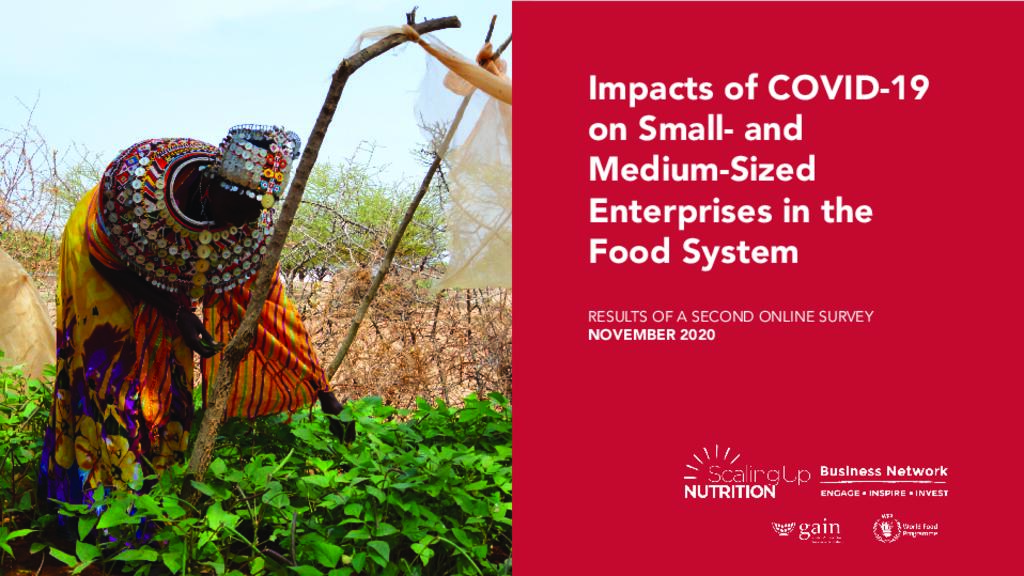A survey of food system SMEs in 14 countries, aiming to assess the impacts of the COVID-19 pandemic and associated control measures on their businesses and their support needs, was undertaken by GAIN and partners, including the Scaling Up Nutrition (SUN) Business Network (co-convened by the World Food Programme (WFP)). This survey took place in October/November 2020, following one in May 2020, results of which are available here.
327 responses were received, with most being from micro- or small-sized firms; respondents were primarily firms in the processing and distribution sectors and grains, vegetables, and fruit value chains. About 30% were from women-owned businesses.
The survey’s key findings included:
- 98% of responding food system SMEs reported being impacted by the pandemic, mainly via decreased sales (75%), difficulty accessing inputs (53%), and difficulty accessing financing (47%);
- For most firms, impacts had lessened over time; about 25% of firms reported that their business was essentially "back to normal";
- 86% of firms reported changing their production volume as a result of the pandemic, generally decreasing it; 69% had changed their product’s sales price;
- 75% of respondents anticipated future impacts on their supply chains, including shortages of supplies (61%) and transportation and distribution disruptions (34%);
- Only about 20% of firms had received support, but 85% and 70% of firms reported urgently needing financial and technical support, respectively, to cope with the effects of the pandemic;
- Women-owned firms were equally likely to report being impacted by the pandemic and generally were impacted in the same ways as men-owned firms, with the same severity and changes over time.
Following this survey, and its results, the next steps have become clear if governments and development partners are to support SMEs in recovering from the shock of the COVID-19 pandemic.
These next steps include communicating clearly on any future pandemic mitigation actions to be taken in a timely way, so that firms can be prepared and adapt, and providing technical assistance to help SMEs, adapt business models, reach consumers online, or adopt processing or packaging to extend products’ storage or shelf life. Also important is to partner with local financial services providers to ensure that firms can build back better by providing a comprehensive package of financial support for SMEs, including short-term low-interest bridge loans to meet immediate needs and adapt businesses in the longer term. Finally, taking into account the differences in firm characteristics and in specific needs for assistance of women-owned firms when designing future interventions will be critical to ensure equality in opportunities and outcomes for these firms.
As the pandemic continues and comes to an end, it will be important to mitigate the impacts uncovered in this survey and facilitate these opportunities in order to support the ongoing supply of safe and nutritious foods for consumers and stronger, more resilient businesses over time.
